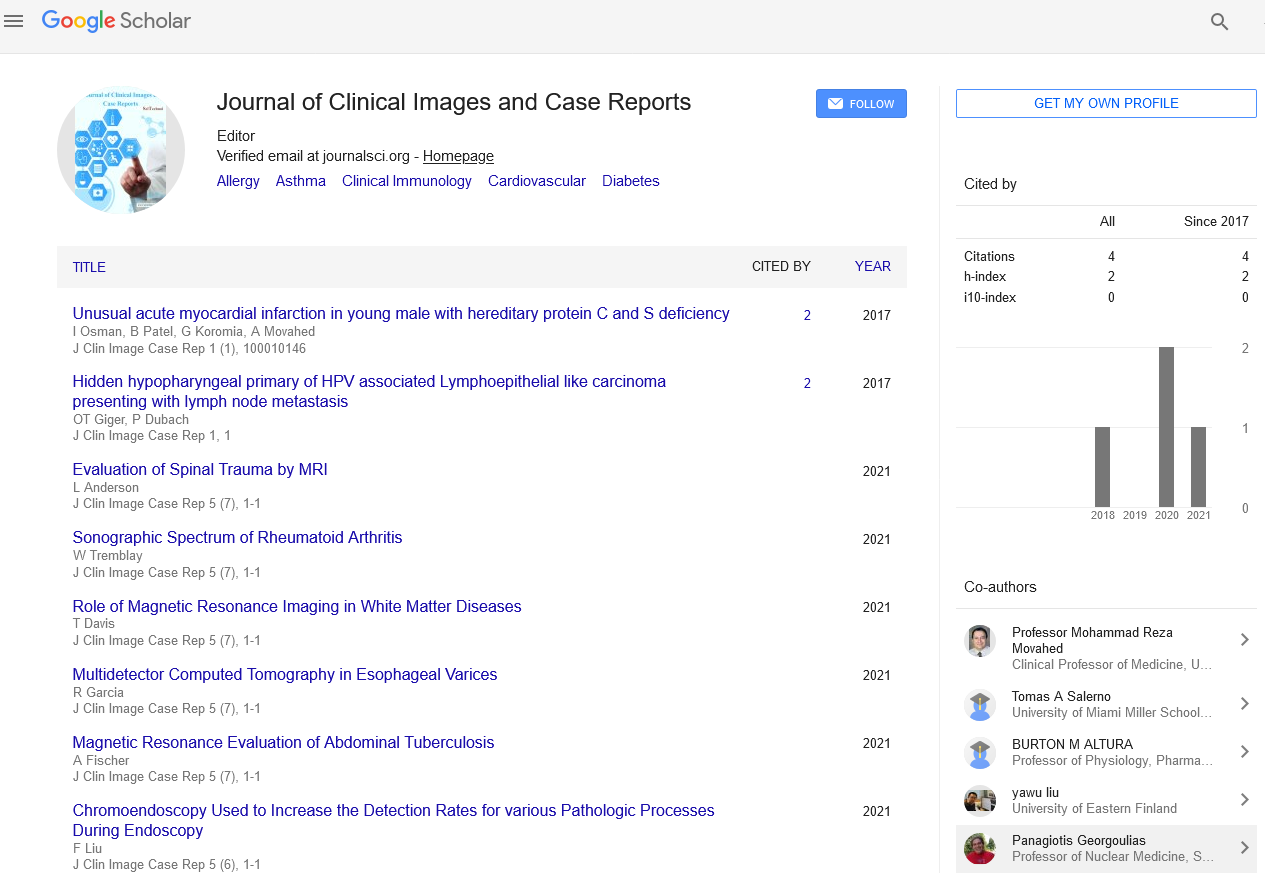Clinical Image, J Clin Image Case Rep Vol: 6 Issue: 1
‘Watermelon stomach’ associated with limited systemic sclerosis
Sambhawana Bhandari*, Maun R Baral and Alla Rudinskaya
Department of Medicine, Danbury Hospital, CT, USA
*Corresponding Author:Bhandari S,
Department of Medicine, Danbury Hospital, CT, USA
Tel: +1 2038309045;
E-mail: bhandarisambhawana@gmail.com
Received Date: 03 January, 2022; Manuscript No. CICR-22-51060
Editor assigned date: 10 January, 2022; PreQC No. CICR-22-51060 (PQ);
Reviewed date: 24 January, 2022; QC No CICR-22-51060;
Revised date: 01 February, 2022; Manuscript No. CICR-22-51060;
Published date: 07 February, 2022, DOI:10.4172/CICR.6(1).198
Citation: Bhandari S (2022) ‘Watermelon stomach’ Associated With Limited Systemic Sclerosis. J Clin Image Case Rep 6:1.
Keywords: Gastrointestinal bleeding, Autoimmune diseases
Clinical Image
Gastric Antral Vascular Ectasia (GAVE) is a rare but clinically important cause of chronic gastrointestinal bleeding [1-4]. It can be associated with a lot of systemic illnesses (cirrhosis, renal failure) including autoimmune diseases like limited systemic sclerosis [2,3]. Visible columns of red and ectatic vessels along the longitudinal folds of the antrum seen on endoscopy are pathognomonic for GAVE, also described as ‘watermelon stomach’. This is a case of GAVE associated with limited systemic sclerosis in a 78-year-old woman.
Due to iron deficiency anemia and melanotic stools, she initially underwent Endoscopy and Colonoscopy which were negative for any abnormal findings. Pill capsule enteroscopy was performed after which showed moderate GAVE (“watermelon stomach") (Figures 1-3) which was coagulated for hemostasis using an argon beam, which was successful.

Figure 1: Clinical cause of chronic gastrointestinal bleeding.

Figure 2: Abnormal findings of endoscopy and colonoscopy.

Figure 3: Pill capsule enteroscopy was performed after which showed moderate GAVE.
 Spanish
Spanish  Chinese
Chinese  Russian
Russian  German
German  French
French  Japanese
Japanese  Portuguese
Portuguese  Hindi
Hindi 